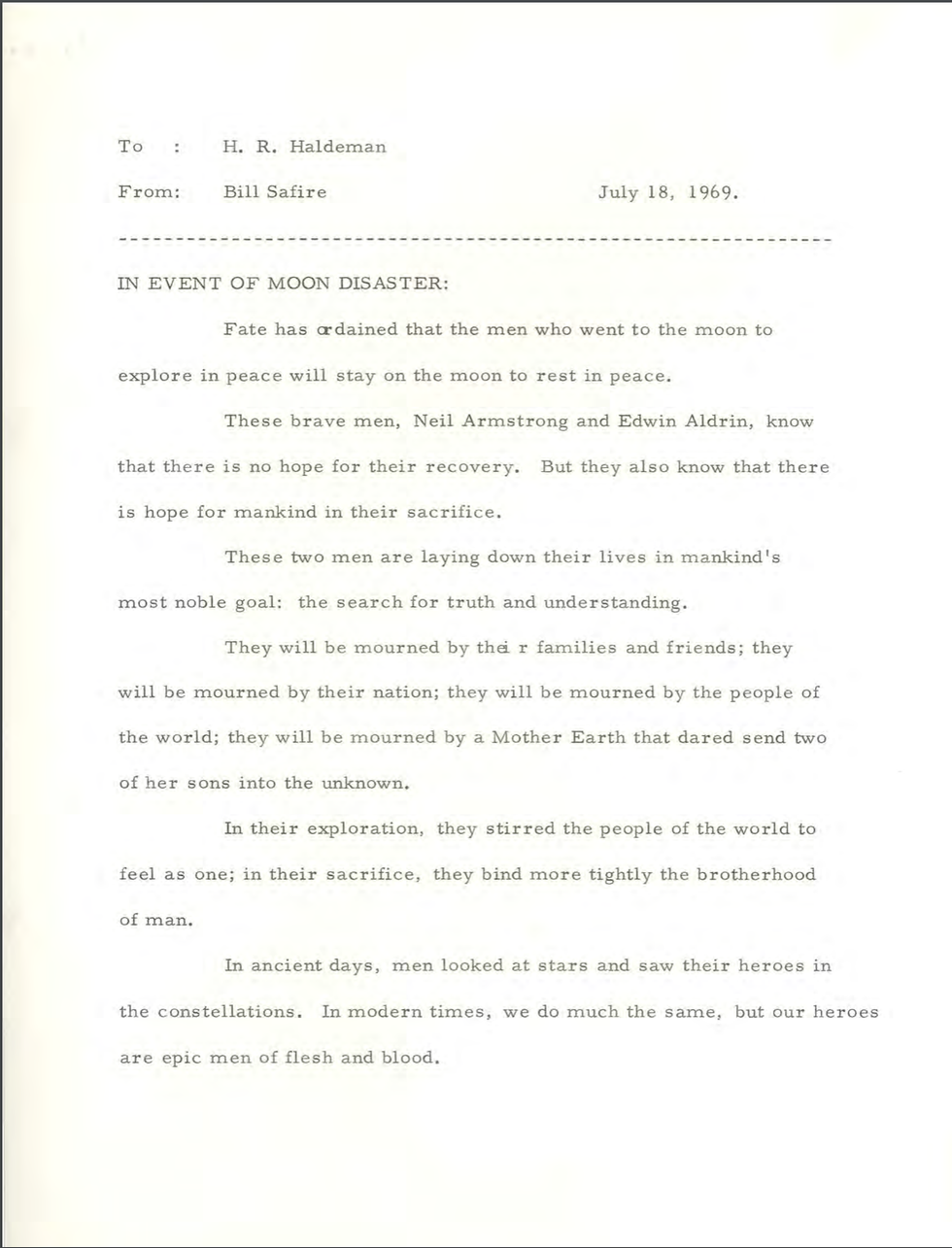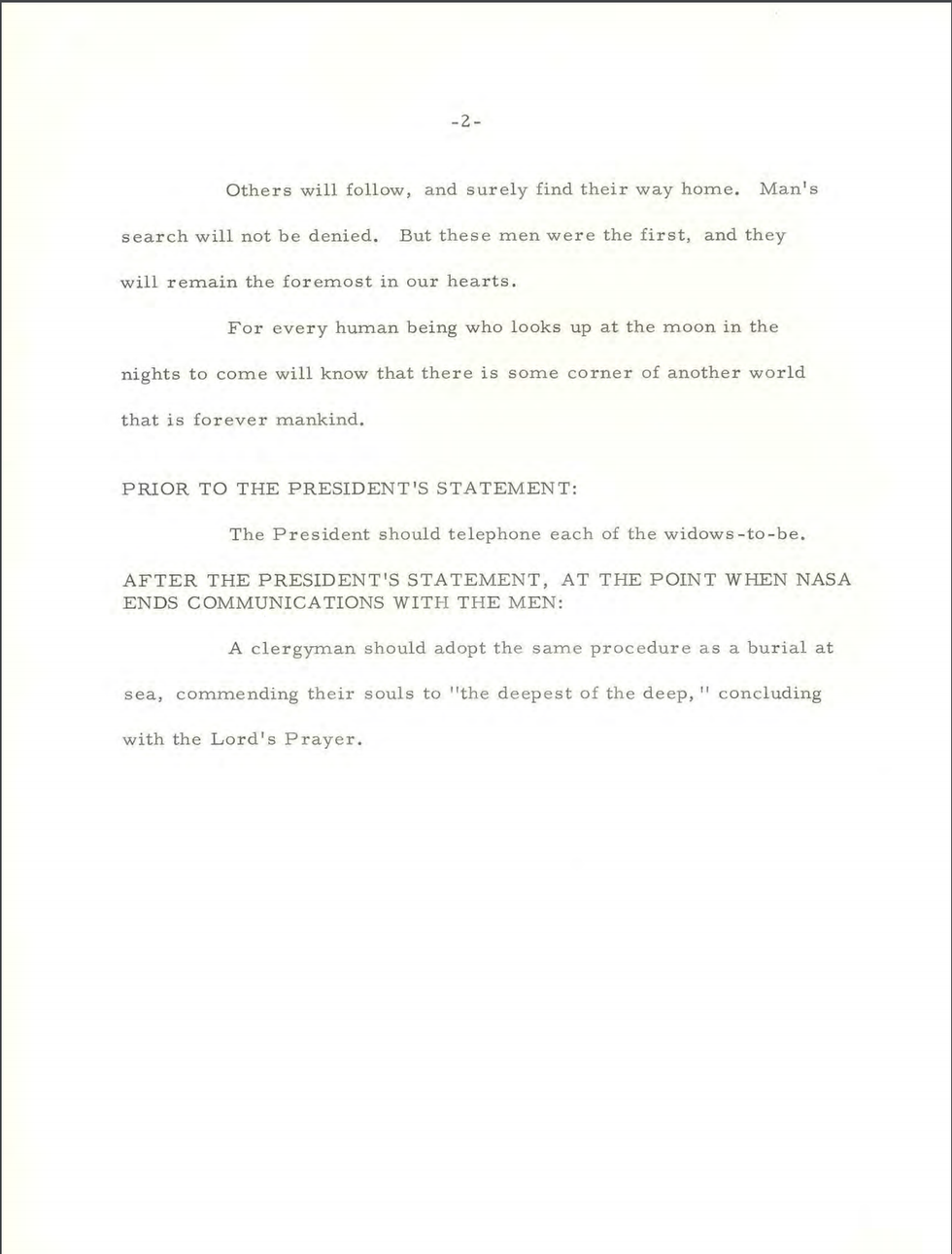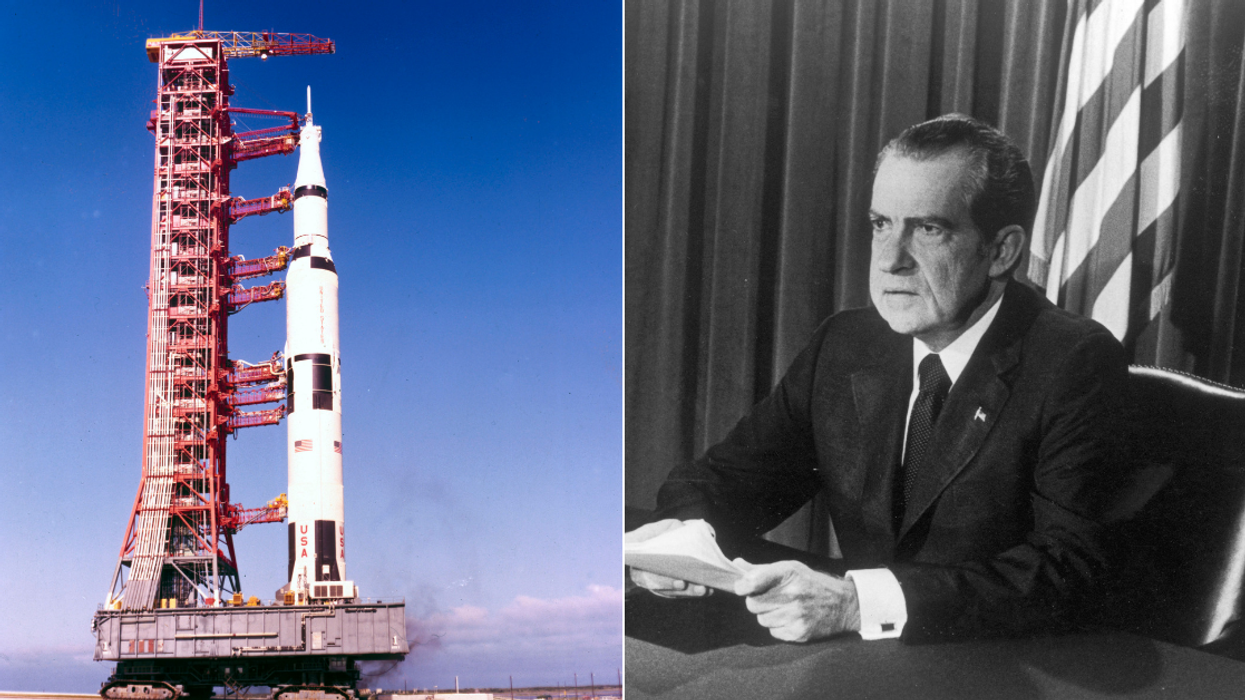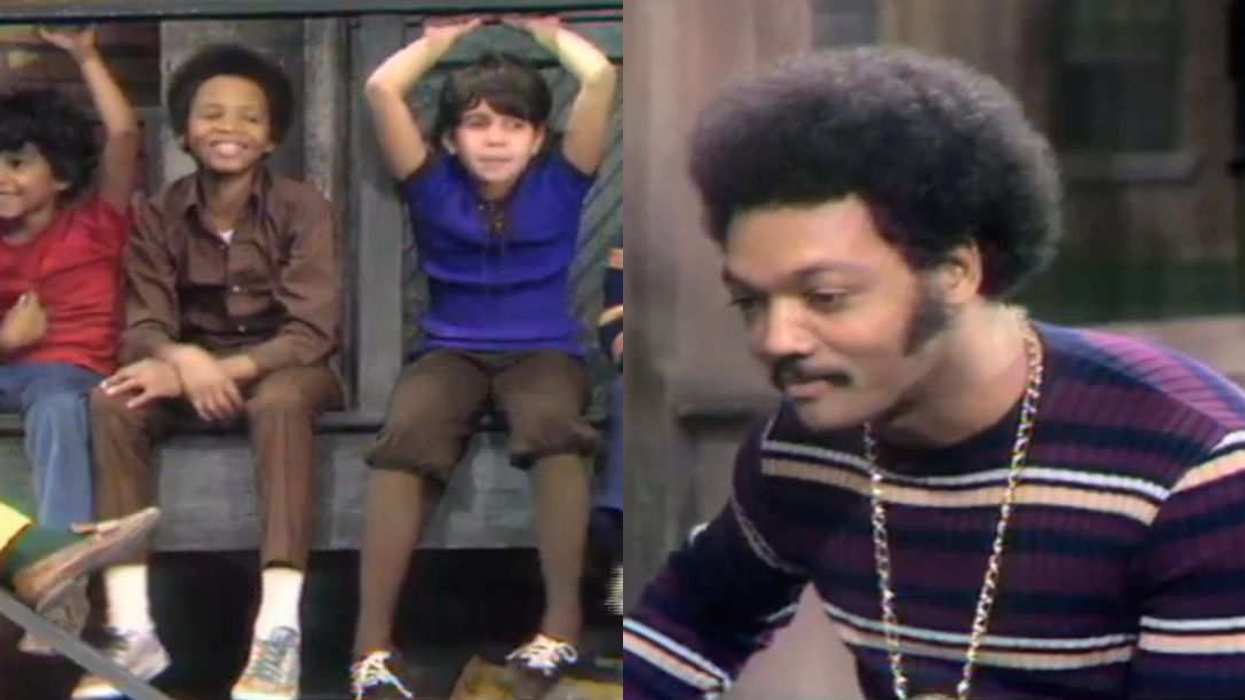Space travel seems like a relatively normal (if still incredibly awesome) idea now, but back in 1969 when the Apollo 11 mission launched on its way to the moon, it was anything but.
Manned space missions had been successful, but we had never put anyone on the surface of the moon, let alone got them home safely again.
Even Neil Armstrong said that he thought they had:
"a 90 percent chance of getting back safely to Earth, but only a 50-50 chance of making a landing on that first attempt."
Buzz Aldrin gave them about the same odds.
Michael Collins, who was also on that first moon-bound flight said:
"I think we will escape with our skins, but I wouldn't give better than even odds on a successful landing and return. There are just too many things that can go wrong."
Given these testimonials from the astronauts themselves as to the danger of the mission, and the tragedy of the Apollo 1 mission, it's easy to see why members of Nixon's cabinet wanted him to be prepared for the possibility that the astronauts wouldn't make it home.
The plea for a contingency plan actually came at the request of fellow astronaut and White House liaison Frank Borman. Borman asked Nixon's speech writer, William Safire, to prepare a contingency plan in case the mission was unsuccessful.
The full text of the speech didn't become public knowledge until 1999.
"Fate has ordained that the men who went to the moon to explore in peace will stay on the moon to rest in peace."
"These brave men, Neil Armstrong and Edwin Aldrin, know that there is no hope for their recovery. But they also know that there is hope for mankind in their sacrifice."
"These two men are laying down their lives in mankind's most noble goal: the search for truth and understanding."
"They will be mourned by their families and friends; they will be mourned by their nation; they will be mourned by the people of the world; they will be mourned by a Mother Earth that dared send two of her sons into the unknown."
"In their exploration, they stirred the people of the world to feel as one; in their sacrifice, they bind more tightly the brotherhood of man."
"In ancient days, men looked at stars and saw their heroes in the constellations. In modern times, we do much the same, but our heroes are epic men of flesh and blood."
"Others will follow, and surely find their way home. Man's search will not be denied. But these men were the first, and they will remain the foremost in our hearts."
"For every human being who looks up at the moon in the nights to come will know that there is some corner of another world that is forever mankind."


The speech really drives home the danger that astronauts face whenever they leave earth. Apollo 11 was a resounding success, and changed but it is tempered by the tragedies that have occurred. The 10th Challenger mission ended in the death of its 7-member crew in 1986.
On a lighter note, the mission was a success and today is the 89th birthday of Apollo 11 astronaut Dr. Buzz Aldrin. Aldrin has spent his life forwarding the mission of space exploration, and is currently a strong proponent of a manned mission to Mars.
Twitter is full of birthday wishes to the astronaut, scientist, and all-around American hero today.
The sobering text of President Nixon's contingency speech reminds us of the sheer difficulty of space travel, and what a wonder it was that the mission was a success.
Dr. Aldrin's life reminds us of the good that we can do when we stick to what we believe. He has spent the majority of his 89 years working to improve humanity and further the idea of scientific exploration.
What could we do as a species if everyone were so driven to improve?














 @chrissy64/Bluesky
@chrissy64/Bluesky @gerstkitty/Bluesky
@gerstkitty/Bluesky @katvanzan/Bluesky
@katvanzan/Bluesky @ghenguskahn/X
@ghenguskahn/X @theshawnstuckey.com/Bluesky
@theshawnstuckey.com/Bluesky
 @starlightwishes/Bluesky
@starlightwishes/Bluesky

 @margarete6888/YouTube
@margarete6888/YouTube @johngalt0096/YouTube
@johngalt0096/YouTube @BiteyTheWombat/YouTube
@BiteyTheWombat/YouTube @thenotoriousgryyn342/YouTube
@thenotoriousgryyn342/YouTube @meredithmorgan5959/YouTube
@meredithmorgan5959/YouTube @margaretgarls153/YouTube
@margaretgarls153/YouTube @valramos2003/YouTube
@valramos2003/YouTube @kokayinewsom9308/YouTube
@kokayinewsom9308/YouTube @Joe_Montfort/YouTube
@Joe_Montfort/YouTube